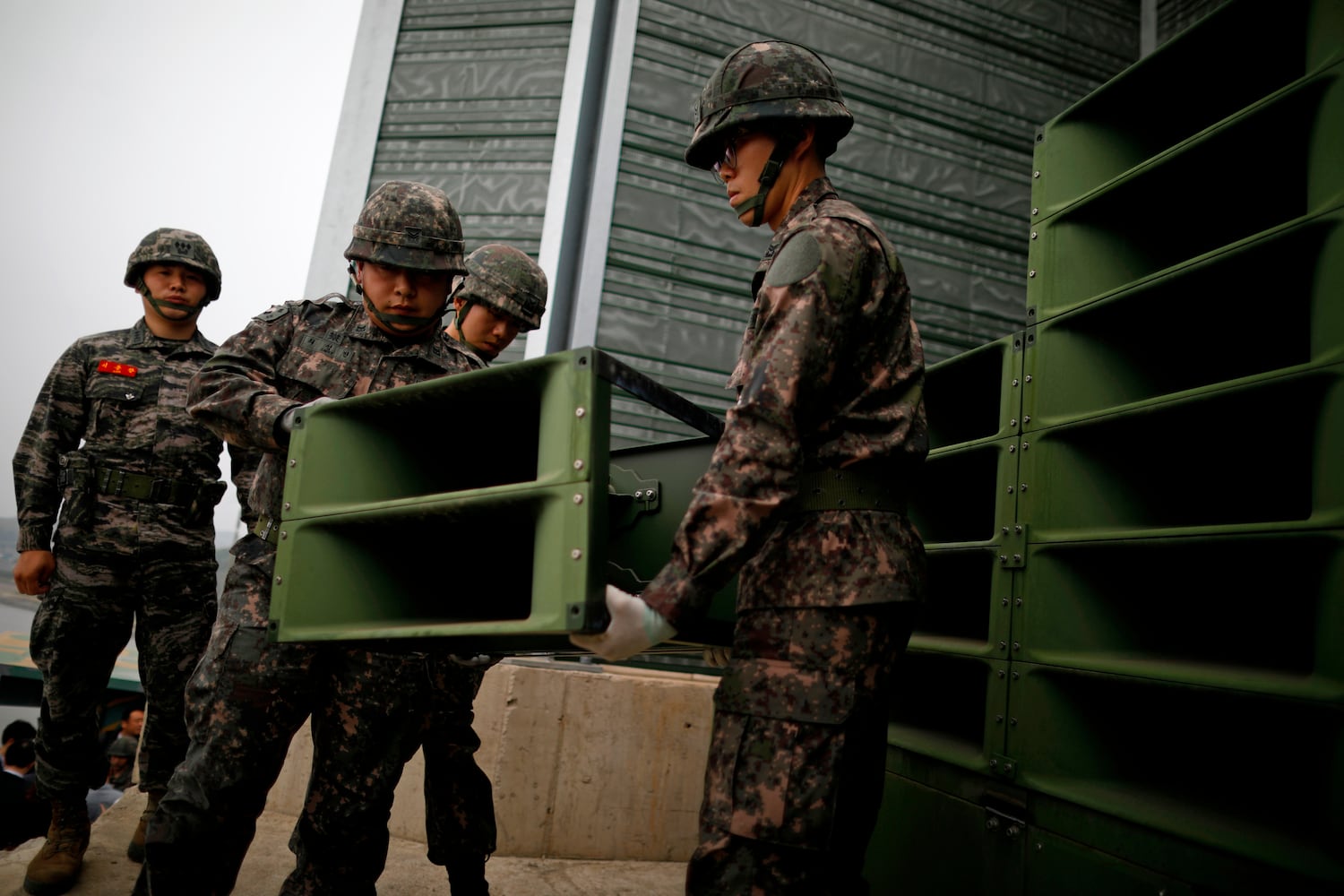North Korea halts loudspeaker border broadcasts day after South Korea’s suspension
It’s the first concrete step by the South’s newly elected president to ease tensions across the war-divided border.

Read about this topic in Korean here and here.
Updated on June 12, 2025, 05:15 PM EST
SEOUL – North Korea stopped its loudspeaker noise broadcasts into South Korea, a day after South Korea’s military on Wednesday turned off its broadcasts that had blared K-pop and propaganda across the demilitarized zone for over a year.
North Korea’s noise broadcasts targeting South Korea were not heard across the entire border area on Thursday, after they were stopped at midnight, South Korean Joint Chiefs of Staff said. South Korea will continue to monitor Pyongyang’s activities, he said.
South Korea’s move on Wednesday to shut down its loudspeaker propaganda broadcasts into North Korea fulfills a campaign promise of the new South Korean president who favors engagement with Pyongyang.
In his inaugural address last week, President Lee Jae-myung – who replaced ousted conservative predecessor Yoon Suk Yeol – promised to improve inter-Korean relations and restart dialogue with Pyongyang, in sharp contrast to Yoon who adopted a more confrontational stance toward the North.
Under Yoon, the South Korean military resumed its loudspeaker “Voice of Freedom” broadcasts to North Korea in June last year, ending a six-year hiatus, in retaliation for the North’s campaign to send balloons laden with trash and human waste to the South.
Lee, meanwhile, had promised during his presidential campaign to stop these broadcasts to ease tensions on the Korean Peninsula.
On Wednesday, South Korea’s Defense Ministry said the suspension of the loudspeaker broadcasts into North Korea was part of efforts to “restore trust in inter-Korean relations and promote peace on the Korean Peninsula.”
Earlier this week, South Korea’s Unification Ministry also called on activists to stop sending propaganda leaflets into North Korea, saying these activities “could heighten tensions on the Korean Peninsula and threaten the lives and safety of residents in border areas.”
The broadcasts have a long history. South Korea began using loudspeakers to pump propaganda messages into North Korea in 1963, and the North set up its own loudspeakers shortly after, with both sides broadcasting their messages every day across the border until 2004, when they agreed to stop after negotiations.
But the South started them up again in 2015 after South Korean soldiers were injured by a North Korean landmine inside the demilitarized zone (DMZ) that separates the two Koreas.
In 2018, the two governments again agreed to halt the broadcasts after a rare summit between their leaders, until the South resumed them last June while the North blared ominous noises – howling wolves, clanging gongs and other irritating sounds – from speakers within their half of the DMZ.

In the past, North Korea’s loudspeakers had broadcast propaganda, insulting the government in Seoul as a “puppet” of the United States or encouraging South Korean soldiers to defect to the “paradise” in the North.
In a press briefing on Monday, the South Korean Joint Chiefs of Staff said the decision to completely stop the broadcasts would hinge on North Korea’s actions, and that a comprehensive review would be needed.
The military’s decision to halt the broadcasts was also driven partly by the fact that North Korea had also stopped sending its trash-laden balloons across the border since late last year.
But regardless of the Lee government’s softer approach, analysts expect North Korea to show continued hostility toward the South.
In particular, Pyongyang’s move to eliminate ‘puppet’ – a derogatory term used in North Korean propaganda to describe South Korea – from its state publication Rodong Sinmun suggests a fundamental shift in its approach toward the South, say analysts.
“This can be interpreted as suggesting North Korea’s abandonment of its will to unify the Korean Peninsula,” Lim Su-jin, a researcher at the Institute for National Security Strategy, argues in a June 10 report.
In addition, North Korea’s recent reports on South Korea are shifting from direct criticism to “strategic indifference,” focused primarily on its relations with the United States, with the word ‘America’ showing the largest increase in all South Korea-related coverage by Rodong Sinmun from January to March, Lim said.
Translated and written by Tenzin Pema. Edited by Mat Pennington.
Updated with details about North Korea stopping its loudspeaker noise broadcasts on Thursday.
This article has been sourced from various publicly available news platforms around the world. All intellectual property rights remain with the original publishers and authors. Unshared News does not claim ownership of the content and provides it solely for informational and educational purposes voluntarily. If you are the rightful owner and believe this content has been used improperly, please contact us for prompt removal or correction.












